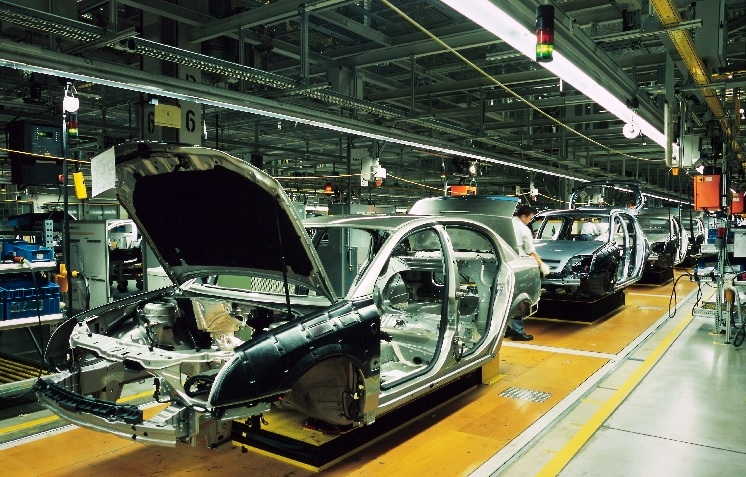Continent’s automobile production stutters yet again
 |
| Continent’s automobile production stutters yet again. Illustration photo |
The Delta variant of the coronavirus is hitting several countries hard on the continent, with high infection levels forcing Honda, Toyota, and Suzuki to halt their operations because of a shortage of parts.
Honda suspended operations of three facilities in China’s Wuhan city last week and has yet to announce a time to resume, with workers unable to travel to work due to area blockades. Last year Honda operations were suspended for 76 days in Wuhan due to the original outbreak.
The carmaker last month was also forced to close one of its Japanese plants while it has also just resumed three facilities in Vietnam in early August after a three-day suspension.
Another competitor, Toyota, announced that it will suspend three assembly lines in Japan for several days in August due to supply chain disruptions caused by the spread of infections in Vietnam.
The latest suspensions will affect the production of around 5,000 vehicles, bringing the total production cut to about 8,000 vehicles following Toyota’s earlier announcement that a line would be suspended due to issues in Vietnam, as reported by Japan Times.
Three Toyota assembly plants in Thailand have also been recently shuttered after local suppliers stopped making parts due to surging infections. The three plants are Toyota’s key factories in Southeast Asia, and can produce a total of about 750,000 passenger cars and commercial vehicles annually.
This is not the first time that carmakers have suspended work at facilities because of supply chain disruption. In this sector, just one missing part can lead to shutting down an entire production line, and the damaging ripple effect of a material or parts shortage quickly spreads throughout the supply chain.
Ford and General Motors paused assembly lines where they have failed to secure chipsets to power their cars’ onboard computers, in which GM cut production by 278,000 units through May, and Ford had to reduce global production by 50 per cent in the second quarter. Other automakers are in the same boat.
The analysis warned that it takes time for semiconductor chips or auto parts to increase in output, while carmakers cannot easily replace any particular part of a car.
According to Goldman Sachs estimates, as the demand for chips continues to exceed supply, the auto industry is forecast to be the biggest loser in 2021, with up to $20 billion wiped off global carmakers’ operating profit this year.
“The virus is an issue that has the potential to affect all Toyota locations and we are continuously working to further enhance our communication and health checks with staff at all locations,” noted a Toyota statement released last week. “Toyota is actively implementing measures to prevent the further spread of the virus and remain committed to providing timely updates as the situation requires.”
The situation is still unpredictable due to expansion of COVID-19 in emerging countries, semiconductor shortages, and soaring material prices, according to the statement.
In Vietnam, car dealers have complained that not much revenue has been recorded for July and some dealers have suffered from zero sales. They do not see much chance of an obvious recovery in August.
Hirai Shinji, chief representative of the Japan Trade Promotion Organization in Ho Chi Minh City, said Japanese companies are ready to cooperate with the Vietnamese government to contain the pandemic and to fully and strictly comply with the regulations.
“It seems very challenging for Japanese companies to comply with the unprecedented three-on-spot plan, but one company after another has been doing its best, supported by instruction of the local authorities, to realise the dual goal of achieving socioeconomic development as well as containing the pandemic. In addition, Japanese companies have been helping each other through sharing the experiences with each other,” Shinji said.
“Some employees are prepared to work, eat, and stay in the factory, but others are not because they have to take care of their own families,” he added. “Even if the companies can secure a certain amount of workers and can continue operations, the amount of production would not be enough to meet the large demand by the manufacturers, but it is better to actually continue operation than to completely disrupt the global supply chain.”
What the stars mean:
★ Poor ★ ★ Promising ★★★ Good ★★★★ Very good ★★★★★ Exceptional
Related Contents
Latest News
More News
- Internal strengths attest to commitment to progress (February 19, 2026 | 20:13)
- Vietnam, New Zealand seek level-up in ties (February 19, 2026 | 18:06)
- Untapped potential in relations with Indonesia (February 19, 2026 | 17:56)
- German strengths match Vietnamese aspirations (February 19, 2026 | 17:40)
- Kim Long Motor and AOJ Suzhou enter strategic partnership (February 16, 2026 | 13:27)
- Haiphong welcomes long-term Euro investment (February 16, 2026 | 11:31)
- VIFC in Ho Chi Minh City officially launches (February 12, 2026 | 09:00)
- Norfund invests $4 million in Vietnam plastics recycling (February 11, 2026 | 11:51)
- Marico buys 75 per cent of Vietnam skincare startup Skinetiq (February 10, 2026 | 14:44)
- SCIC general director meets with Oman Investment Authority (February 10, 2026 | 14:14)

 Tag:
Tag:



















 Mobile Version
Mobile Version